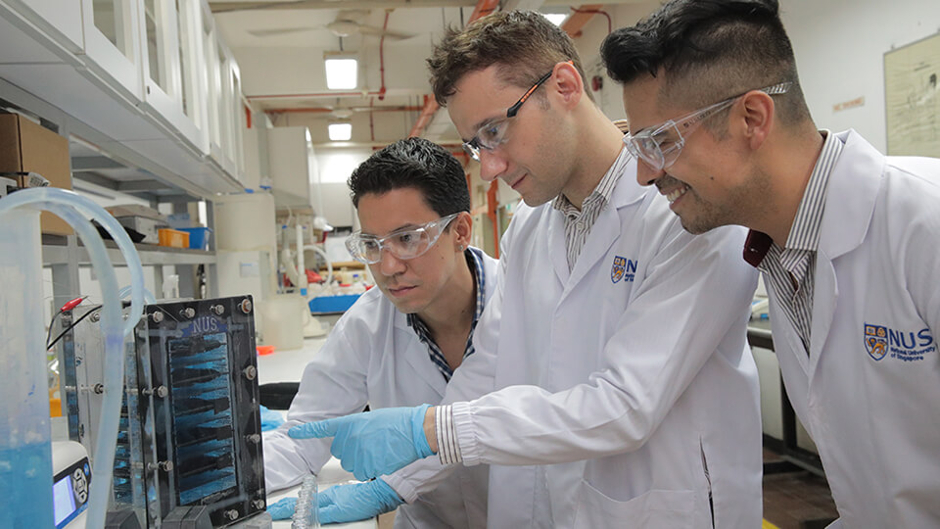Electrochemical system rids wastewater of pollutants
Scientists from the National University of Singapore have developed an electrochemical approach to treat industrial wastewater using electricity as a reagent for purification.

NUS believe the method can remove up to 99 per cent of hard-to-treat organic compounds found in different types of industrial wastewater. Furthermore, the system is claimed to operate on low electrical power and does not generate secondary waste, such as sludge, that requires further residual waste processing such as incineration.
“Despite the great advances in wastewater treatment technologies, the removal of refractory organic compounds remains a costly and challenging process. Our invention provides an environmentally-friendly solution and helps to raise the overall standard of industrial wastewater treatment,” said research leader Assistant Professor Olivier Lefebvre from the Department of Civil and Environmental Engineering at NUS Faculty of Engineering.
Wastewater from the electronics and pharmaceutical industries may contain a high concentration of solvents and mixtures of complex organic substances, while wastewater from farmlands may contain a high concentration of pesticides or herbicides. These organic compounds are not biodegradable and can be harmful to humans and the environment.
Register now to continue reading
Thanks for visiting The Engineer. You’ve now reached your monthly limit of news stories. Register for free to unlock unlimited access to all of our news coverage, as well as premium content including opinion, in-depth features and special reports.
Benefits of registering
-
In-depth insights and coverage of key emerging trends
-
Unrestricted access to special reports throughout the year
-
Daily technology news delivered straight to your inbox










Water Sector Talent Exodus Could Cripple The Sector
Maybe if things are essential for the running of a country and we want to pay a fair price we should be running these utilities on a not for profit...